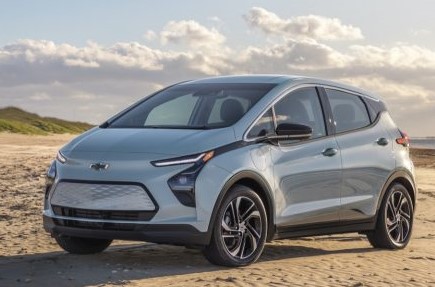Commentary
“I got it and drove it from Michigan to here this last weekend and went by every gas station and it didn’t matter how high it was,” said Michigan Democrat Sen. Debbie Stabenow, proudly relating her experience of driving an electric car from Michigan to Washington DC, while passing gas stations along the way.
Having just read an account of a round-trip two women took, New Orleans-Chicago, in an electric vehicle, and the battery charging difficulties they had, I was curious for details of the Stabenow trip.
Over four days, the couple spent $175 on charging, and estimated that gas at the AAA rate would have been $275. They remarked that the $100 savings “cost us many hours of waiting time.”
I doubt that performance details of Stabenow’s trip will be released. Call me a skeptic, but frankly, I seriously doubt that the 72-year-old legislator was at the wheel; perhaps an intern was.
The Chevrolet Bolt EV she was driving has a published driving range of 250 miles per charge, city/highway, the Senator certainly had to stop at least two times while she laughingly passed those gas stations, since the online mileage calculator indicates that a trip from Detroit to Washington DC, about 525 miles, requires about eight hours driving time. Though her charging times were not released, they were certainly significantly longer than a few-minute stop for gas.
The Car Connection reports that a Chevrolet Bolt EV full charge takes seven hours, but that a charge of 100 miles can be accomplished in about 30 minutes.
The Bolt sells for about $35,000, depending on desired features, less than the average electric car price of $56,000. Union-built EVs are eligible for $7,500 credits. EV’s are out of the range for most Michigan residents with $59,000 median incomes, compared to Stabenow’s $200,000 income.
With the Infrastructure Investment and Jobs Act, promoted by Stabenow and fellow Sen. Gary Peters, Michigan is receiving over $16 million to build electric vehicle charging stations across the state. And we taxpayers are now on the hook for $5 billion to build charging stations across the country.
Out of touch, Biden, his transportation secretary and energy secretary, suggest that buying an electric car is the answer to high gas prices.
Having initiated his personal vendetta against former President Trump by shutting down the Keystone pipeline and drilling in Alaska, he effectively ended our energy independence in the process.
Now, as he moves ahead with his goal of transitioning the country off fossil fuels, he’s waging war on the oil and gas industry.
Simultaneously, however, utilities are warning of electricity shortages as traditional power plants – coal, natural gas, and even nuclear – are being retired more quickly than they can be replaced by renewable energy and battery storage. Power outages are predicted.
They’re spending tens of billions of dollars in spending to reduce carbon emissions in preparation for a transition to renewable energy, and consumers will be hit with higher electric bills.
Yet, the president repeatedly says that renewables – wind and solar – “will cut energy costs for families an average of $500 a year.” That’s preposterous.
In an effort to spur domestic solar panel production and ramp-up so-called “clean energy” projects in his Green New Deal by invoking the Defense Production Act, he’s effectively forcing private companies to comply with his plan to transition away from oil and gas.
I’m reminded of the Solyndra fiasco, and wonder why Biden seemingly has no memory of the Obama-Biden Energy Policy Act that provided Solyndra a $535 million loan guarantee to produce solar panels in 2010. The company later went bankrupt.
I understand Stabenow’s constituents were not pleased with her smug comment on the floor of the Senate, seeing it as a photo op at a time when they’re struggling with inflation. A rude awakening with power outages and higher energy costs is on the horizon, not only for Michigan residents, but the nation.
Just 150 days until the midterms. May God continue to bless the United States of America.







